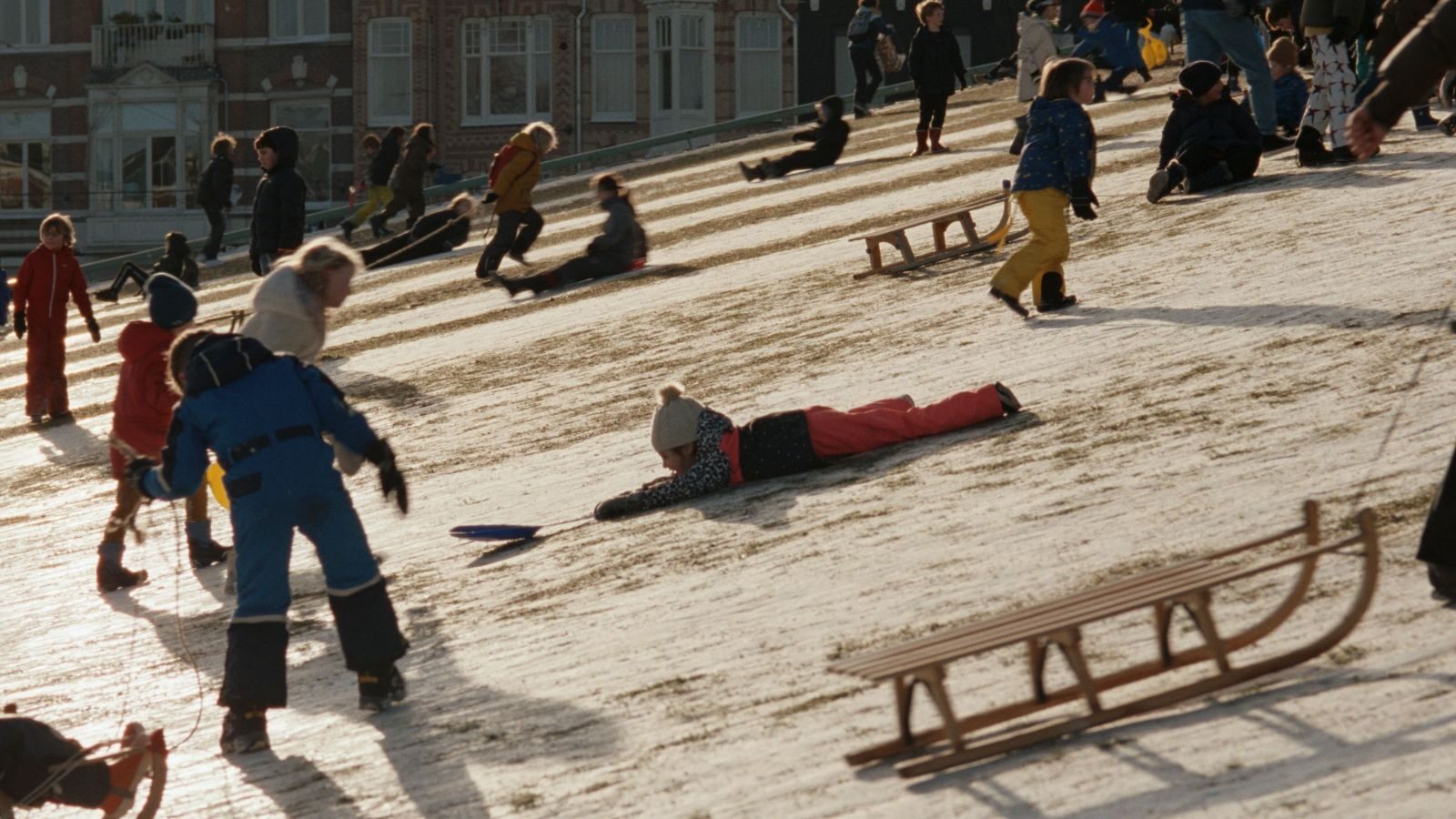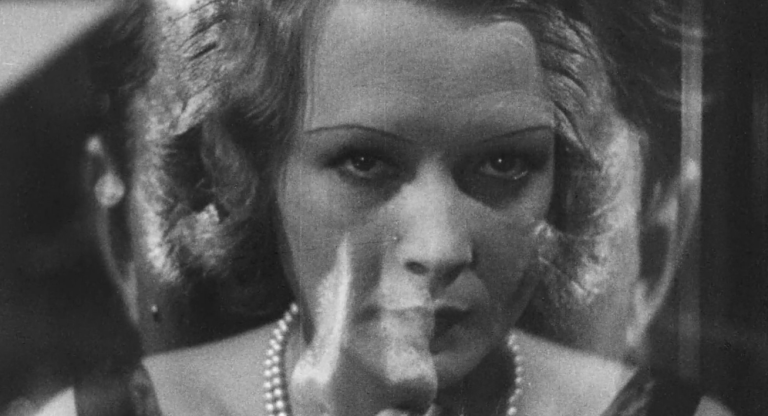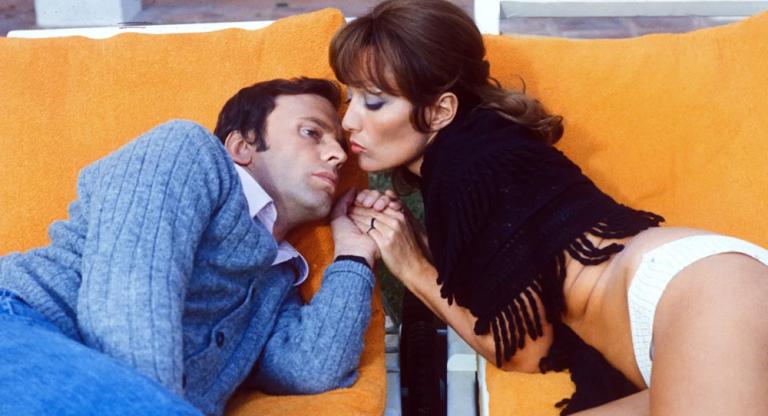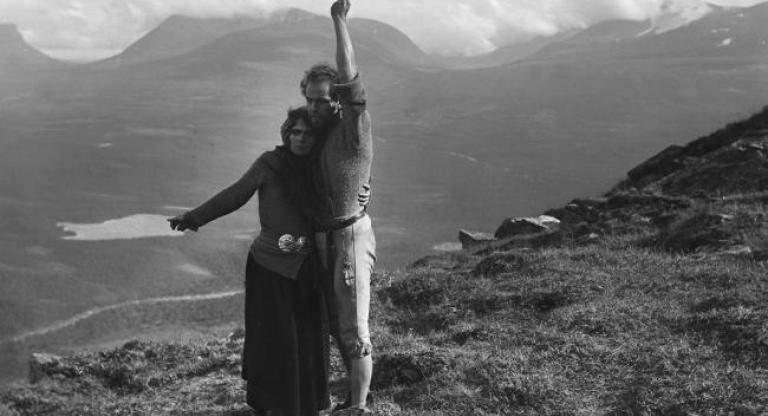Fifteen years into a decorated but small filmography, the director Steve McQueen makes searching, angry, righteous films about oppression and liberation. Occupied City (2023), a collaboration between McQueen and his wife, the Dutch historian, author, and director Bianca Stigter, is a departure of sorts. It’s McQueen’s first documentary, about one theater of World War II and the Holocaust; a work of endurance cinema at 262 minutes, pared down from 36 hours of footage.
The eponymous city is Amsterdam, which lived under the rule of the Third Reich for five years, 1940–1945. It had a sizable Jewish population of 80,000 in the late 1930s, 60,000 of whom would be murdered in concentration camps. McQueen takes a formally daring approach to telling their history through a Sebaldian tour of haunted addresses—apartment buildings, plazas, parks, schools, and hospitals—in the present day. Over the course of four and a half hours, a disembodied, dispassionate young narrator (Melanie Hyams) relates the history of each space. If you were to watch the film on mute, it would play as a mostly pleasant travelogue, and if you didn’t speak English, you might think the soothing tone of the narrator, and a soundtrack otherwise composed largely of street sounds and half-heard conversations, was for a promotional film made by the Amsterdam Bureau of Tourism.
In vignettes, none longer than a few minutes, the city is rendered as an atrocity map of landmarks where Jews were murdered or sterilized, of secret resistance gathering places, of Nazi strongholds. Teenaged girls make TikToks in front of an H&M as the narrator explains it was once the site of protests against occupation. Children play and dogs piss on a sledding hill as we learn this square once held an arena where Nazis would congregate. In some cases, synchronicities emerge: a flea market where vintage clothes are unceremoniously piled on the sidewalk is where Jews once purchased the Nazi-mandated identificatory gold stars. In others, there’s stark contrast: adolescent girls huddle, gossiping and laughing, in a hallway between classes at the school McQueen’s own children attended as we’re told it once served as an SS interrogation center. In all things, we feel a profound absence as the evils of history hide just below banal surfaces. The city is superimposed over itself: as it is, as it was, and as it never got the chance to be.
In a Q&A, McQueen said, “This couldn’t have been an hour-and-a-half movie. It had to have the weight of time.” As with any work of durational art, the length and breadth lulls the viewer into a trance. You get lost in the rhythm, dipping in and out of the detached “narrative” as the names of Dutch Nazi officers, Dutch Jews, Dutch resistance fighters, and Dutch collaborators run together. You can drift in and invest in the visual story of a Covid rally and tune out its historical significance, or really lock into a moving anecdote of the history of Jewish murders in a park without paying mind to middle-aged joggers running into the foreground. Slowly, the volume and enormity of the crime, the accumulating liquidation of buildings and bicycles and human beings recited like notices before a school assembly, becomes a cudgel beating down the viewer. As Stigter said, “The emotion is in the facts.”
The film ends with a bar mitzvah, an obvious final redemptive note of survival, but upon reflection, redemption is hiding in plain sight throughout the epic in a more subtle form. Today, a population of approximately 15,000 Jews live in Amsterdam, a small fraction of what the Jewish population might have been had the Holocaust passed over the city. Steve McQueen told a New York Film Festival audience, of his time in Amsterdam, that “You often feel you’re living with ghosts.” His triumph is that he has made evident those lost generations of Jews. We can hear their children playing in every second of deafening silence, and they are conjured in every corner of negative space in every frame, as the minutes and hours pass. They are the stars of his remarkable film.
Occupied City screened at the New York Film Festival.



